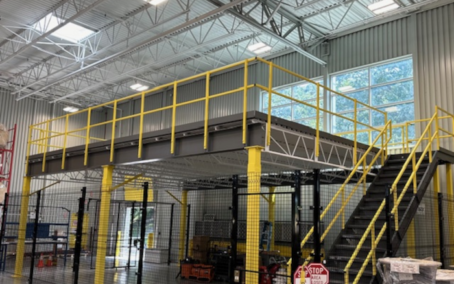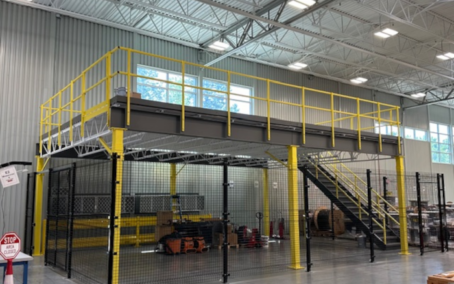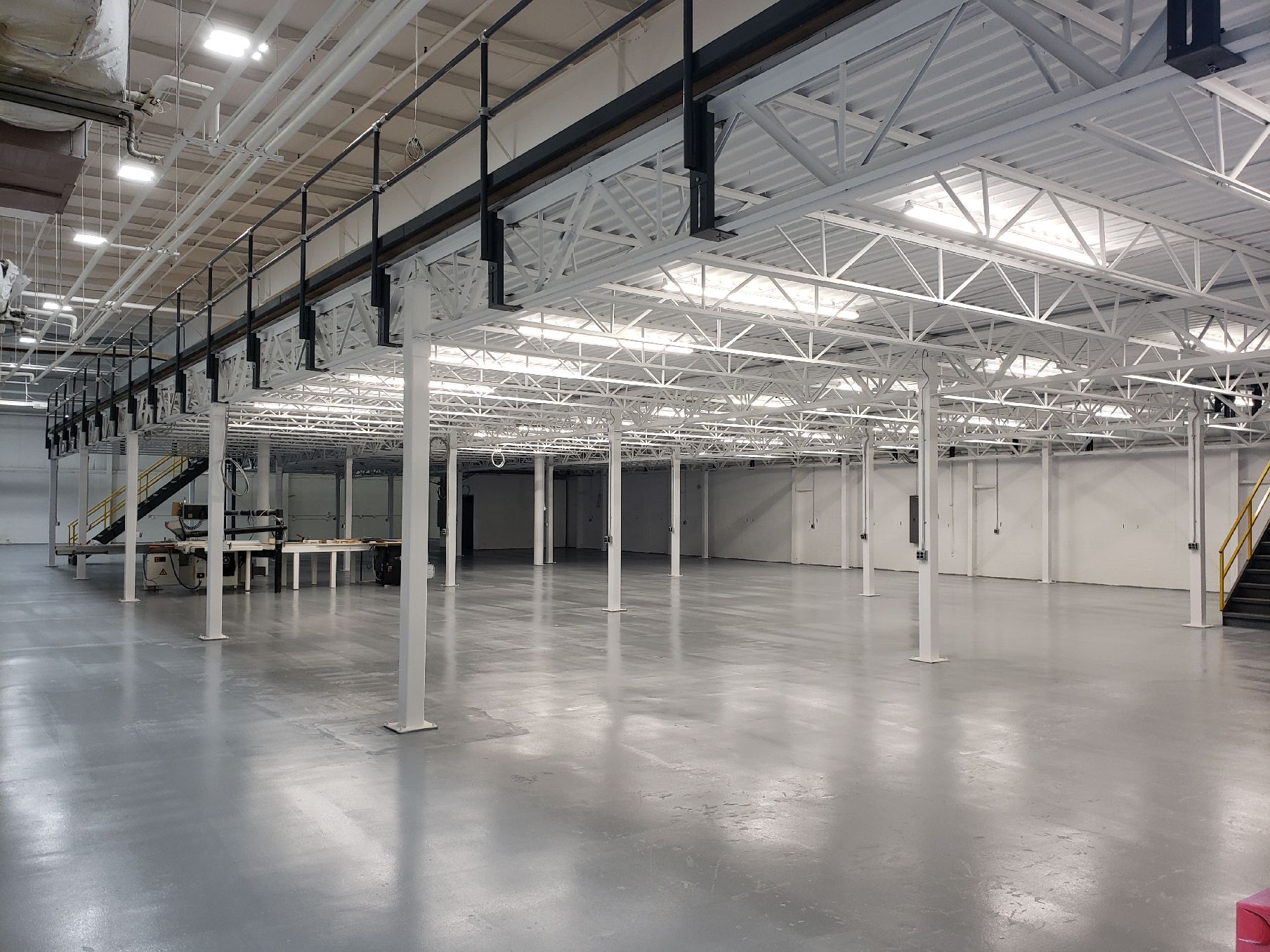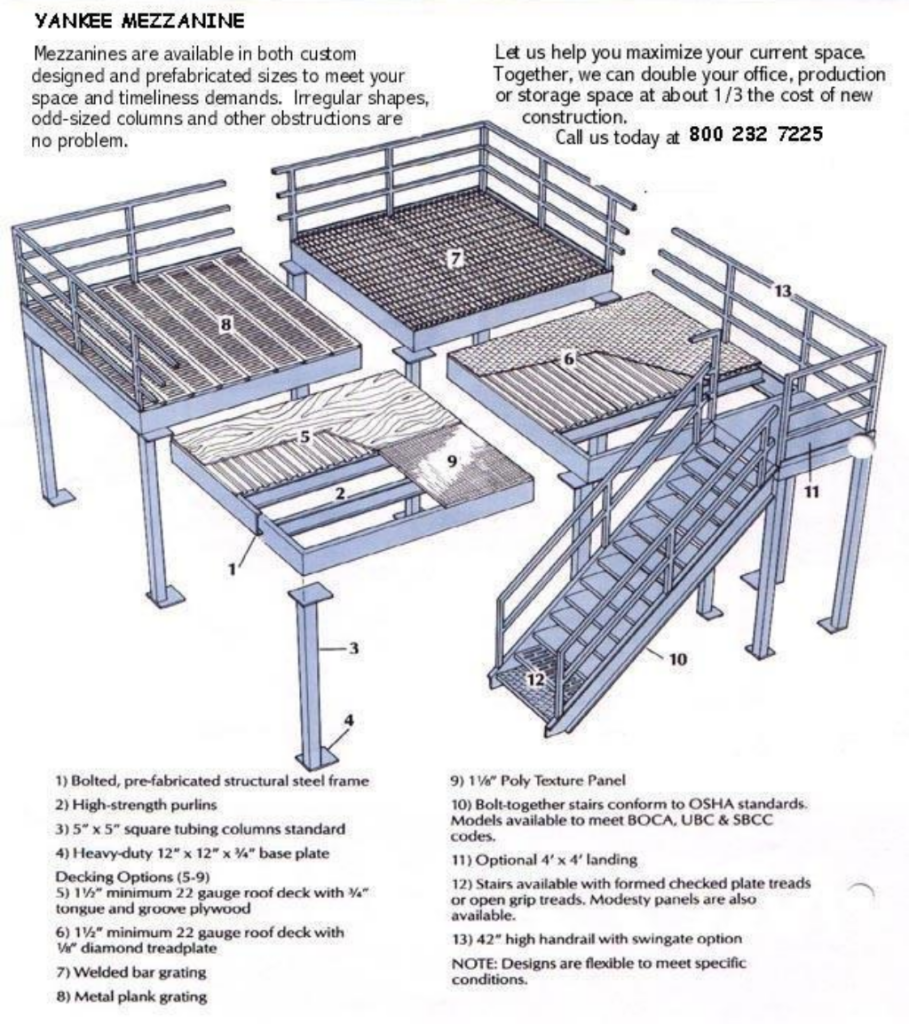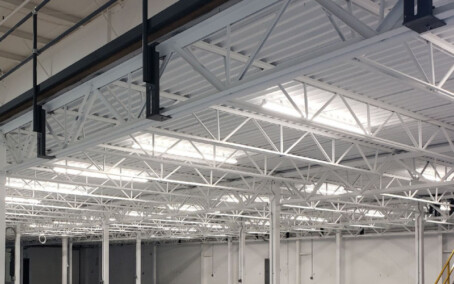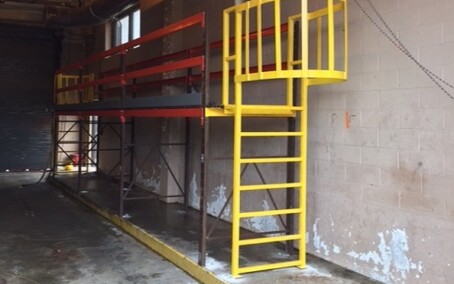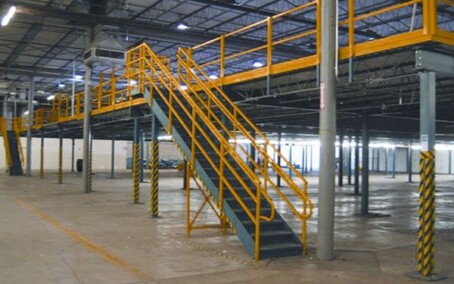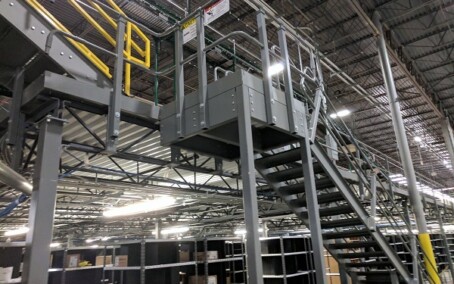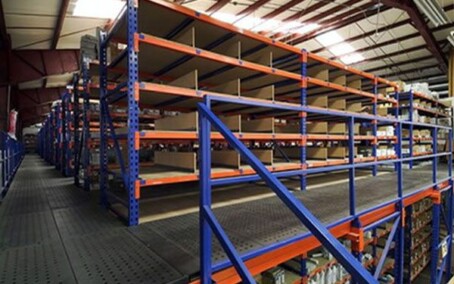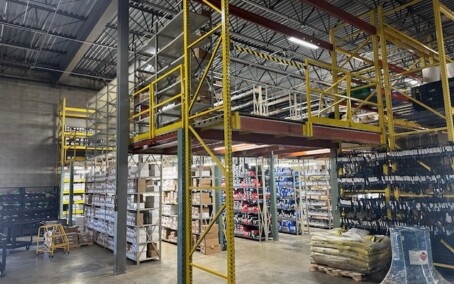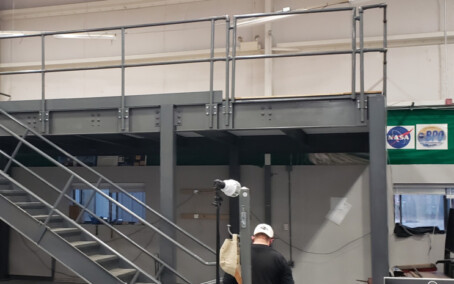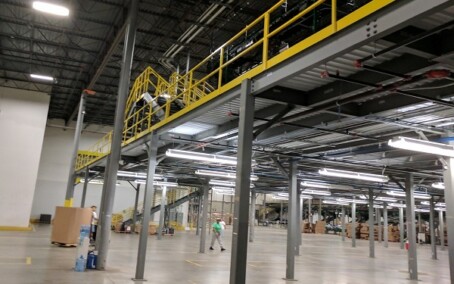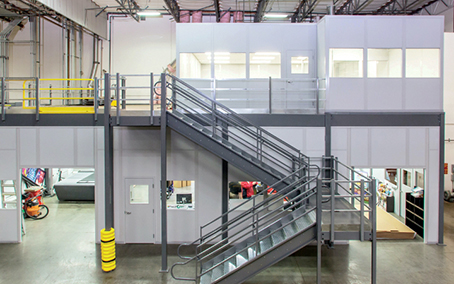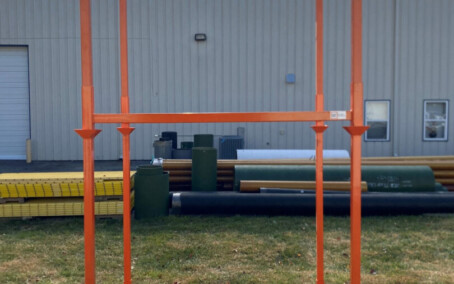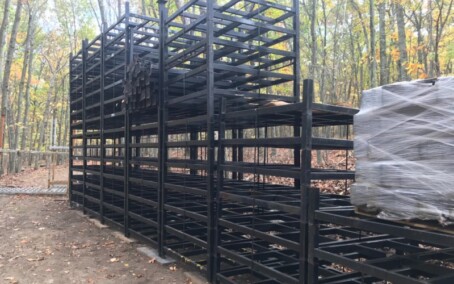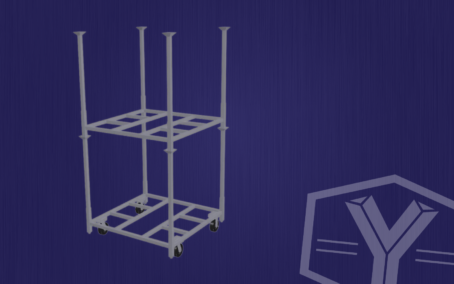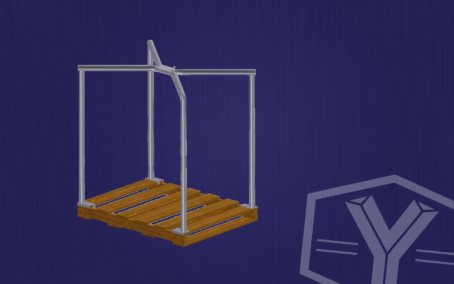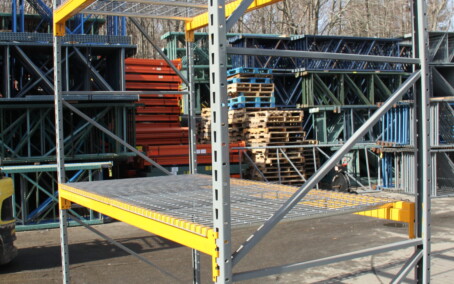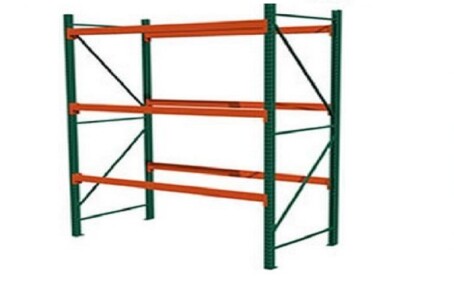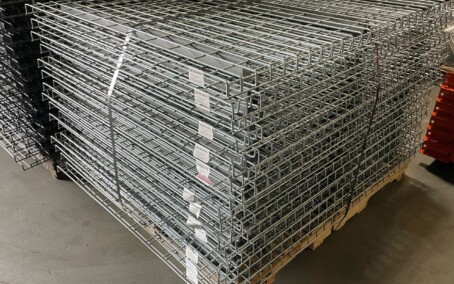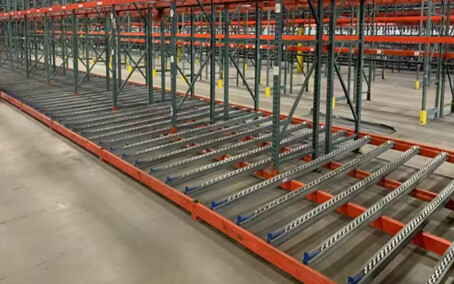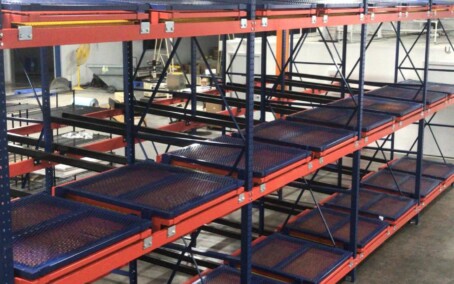Steel Mezzanines FAQ
1. What is a steel mezzanine?
A steel mezzanine is an elevated platform or intermediate floor built within an existing building to create additional storage, office, or work space without the need for a costly expansion. Made from durable steel, mezzanines are designed to support heavy loads and provide a flexible solution for maximizing vertical space in warehouses, factories, and industrial facilities.
2. What are the benefits of a steel mezzanine?
- Maximized Space: A steel mezzanine allows you to make better use of vertical space, expanding your usable area without the expense of expanding your building.
- Durability: Steel mezzanines are strong, long-lasting, and capable of supporting heavy loads, making them ideal for industrial settings.
- Cost-Effective: Adding a mezzanine is often more affordable than building out or expanding your existing facility.
- Customizable: Steel mezzanines can be designed to fit specific needs, such as shelving, office space, or production areas, and can be tailored to any floor plan.
3. How much weight can a steel mezzanine hold?
The load capacity of a steel mezzanine depends on its design, including the materials used and the structural specifications. On average, steel mezzanines are designed to support between 100 to 250 pounds per square foot, though heavier-duty options can support more. It’s essential to work with a supplier or engineer to ensure the mezzanine meets your specific load requirements.
4. How do I design a steel mezzanine for my space?
Designing a steel mezzanine involves evaluating your specific needs, such as the amount of space required, the type of items to be stored, and the load capacity. A professional mezzanine supplier can assist in creating a custom layout, incorporating features like adjustable shelving, stairs, guardrails, and accessibility options. Consider factors such as ceiling height, floor space, and potential future expansions when designing your mezzanine.
5. Can a steel mezzanine be easily installed?
Yes, one of the key advantages of steel mezzanines is their ease of installation. Steel components are prefabricated off-site, which means the assembly process is typically fast and efficient. Installation often involves bolting the platform to the existing structure, reducing downtime and disruption to your daily operations. Professional installation is recommended to ensure safety and compliance with local building codes.
6. What industries use steel mezzanines?
Steel mezzanines are used across many industries, including:
- Warehousing and Distribution: For additional storage or picking/packing areas.
- Manufacturing: To create production space, assembly areas, or to house machinery.
- Retail: To expand back-of-house storage without expanding the footprint of the store.
- Offices and Call Centers: To create office space or break areas in industrial settings.
- Laboratories: To add workspace or storage for equipment without taking up valuable floor space.
7. How do I maintain a steel mezzanine?
Maintaining a steel mezzanine involves:
- Regular Inspections: Check for any signs of wear, rust, or damage to the steel structure and fasteners.
- Cleaning: Periodically clean the mezzanine to ensure that dust, debris, or other materials do not accumulate on the platform or in the structural components.
- Load Management: Ensure that the mezzanine is not overloaded beyond its weight capacity.
- Safety Features: Inspect guardrails, stairs, and other safety features to ensure they are intact and functional.
8. Are steel mezzanines customizable?
Yes, steel mezzanines are highly customizable. You can choose from various deck materials, such as steel, wood, or grated metal, depending on the purpose of the mezzanine. Additional customization options include adding shelving, staircases, handrails, gates, and even lighting. The size and configuration of the mezzanine can be tailored to fit your exact requirements, making it a flexible solution for many applications.
9. Are steel mezzanines compliant with building codes?
Yes, steel mezzanines must comply with local building codes and safety regulations, including fire codes, load-bearing standards, and accessibility guidelines. Mezzanine systems are designed to meet OSHA standards for safety and can be engineered to meet the specific requirements of your local jurisdiction. Be sure to consult with a professional to ensure that your mezzanine is properly designed and installed in accordance with local laws.
10. How long do steel mezzanines last?
Steel mezzanines are built to last for many years. With proper maintenance and care, a well-constructed steel mezzanine can last 20 years or more. The durability of the steel structure, along with its resistance to rust and wear, ensures a long service life. Regular inspections and preventive maintenance can help extend the mezzanine’s longevity.
11. How can Yankee Supply help with my steel mezzanine needs?
At Yankee Supply, we offer a wide range of customizable steel mezzanine solutions designed to maximize your workspace. Whether you need additional storage, office space, or a specialized work platform, our experts can help you design, plan, and install the ideal mezzanine system for your facility. Contact us today to learn how we can help you optimize your space and improve operational efficiency.


